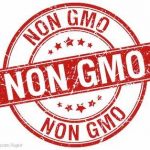The dietary supplement Ginko biloba, which some believe helps improve memory (although studies have shown it is ineffective), has been linked to cancer in ratrs and mice. The new study, conducted by scientists at the National Toxicology Program (NTP), found that animals who received the supplement were more likely to develop tumors in the liver and thyroid than animals who were not given the extract. In the study, scientists gave 50 male and female rats corn oil solutions with 100, 300, or 1,000 milligrams of Gingko biloba extract per kilogram of body weight five times a week for two years. Another group received 200, 600, or 2000 mg/kg every day. Those concentrations fall within the range of what is on the market. The supplier of the extract does supply material to companies in the … [Read more...]
Eating Deep Fried Foods Increases Risk of Prostate Cancer
Research published in The Prostate has found that eating deep fried foods regularly is linked to an increased risk of developing prostate cancer. In addition, more aggressive types of the disease are more likely when deep-fried foods are part of a diet. The study was conducted at the Fred Hutchinson Cancer Research Center. The scientists studied 1,549 men who had been diagnosed with prostate cancer and compared them with 1,492 age-matched men who were healthy. They controlled for age, family history of the disease, PSA screening history, and BMI. Dr. Janet L. Stanford, lead author of the study, said, "to the best of our knowledge, this is the first study to look at the association between intake of deep-fried food and the risk of prostate cancer." The problem is most likely … [Read more...]
Most Food-Cancer Links Unproven, According to New Study
Dr. Jonathan Schoenfeld of the Harvard School of Public Health has published a new study in the American Journal of Clinical Nutrition that says trials have failed to find effects for observational studies that link foods with cancer. Everything from low fat salad dressing to celery, olives, and sugar has been linked to cancer development in observational studies. The scientists chose 50 random ingredients from the Boston Cooking-School Cook Book then searched each ingredient to find associations with cancer risk in medical literature. They found that 40 foods, including flour, coffee, butter, sugar, peas, duck, tomatoes, lemons, onions, carrots, parsley, lobster, veal, cinnamon, and mustard, had been studied as being possible carcinogens. The ten that were not studied were uncommon … [Read more...]
New Study: Link Between Red Meat Consumption and Bladder Cander
A new study presented at the 11th AACR International Conference on Frontiers in Cancer Prevention Research found that protein and iron found in red meat, when combined in the body, form N-nitroso compounds that may increase the risk of bladder cancer. Furthermore, some people have a reduced ability to reverse the effects of those compounds because of a specific gene variation. Chelsea Catsburg of the University of Southern California said that, "nitrosamine formation occurs predominantly in the stomach and intestines, so these exposures have been studied extensively in relation to gastric cancer and somewhat in relation to colorectal cancer. However, there is evidence that these reactions also take place in the bladder, particularly in the presence of infection." Ms. Catsburg is a … [Read more...]
First Long Term Study on GMO Effects Finds Tumor Growth
The first long-term study of the effects of GMO Roundup-ready corn have just been released, published in the journal Food and Chemical Toxicology. Scientists found that rats fed Roundup tolerant GMO maize developed mammary tumors and kidney and liver damage after four months. This number is significant because the Monsanto studies that the FDA used to grant approval for GMO foods ended at three months. Professor Gilles-Eric Séralini, Molecular Biologist at Caen University and first author of the research, spoke at a press conference sponsored by The Sustainable Food Trust. Food Poisoning Bulletin attended this conference. Dr. Séralini stated that his research group tested Roundup in formulation as it is found in tap water, the level of Roundup found in GMOs, and 1/2 of the solution dose … [Read more...]









